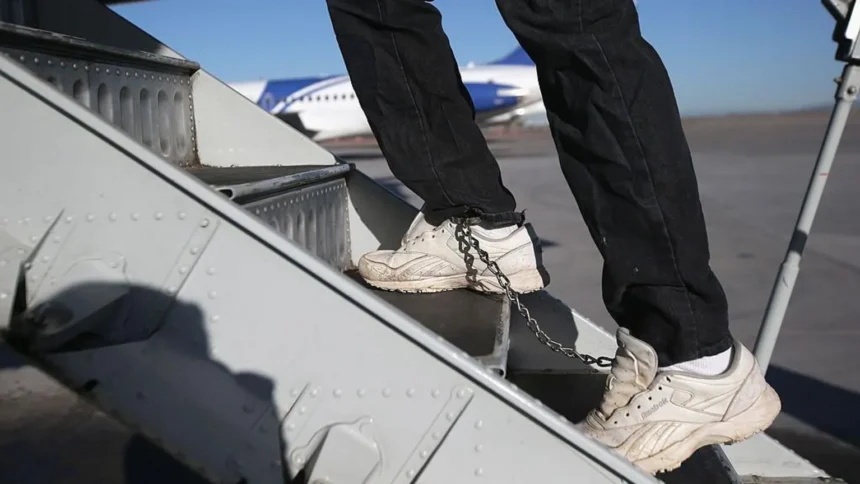OUAGADOUGOU, Burkina Faso — Burkina Faso’s military government has rejected repeated U.S. requests to accept third-country nationals deported from the United States, prompting Washington to suspend visa services in the West African nation, according to the foreign minister and U.S. embassy announcements.
Foreign Minister Karamoko Jean-Marie Traoré stated on national television Thursday that Ouagadougou had turned down multiple overtures from the Trump administration to take in non-Burkinabè deportees. “Burkina Faso is not a land of deportation,” Traoré said, describing the proposal as “unworthy and indecent.” He noted that the country recently eliminated visa fees for all Africans to promote regional integration, but emphasized that this hospitality does not extend to serving as a dumping ground for unwanted migrants from other nations.
The U.S. Embassy in Ouagadougou announced the same day that it would temporarily pause issuing immigrant, tourist, student and business visas, effective Friday, directing applicants to the embassy in neighboring Togo’s capital, Lomé. The embassy cited a U.S. diplomatic note placing Burkina Faso on a list of countries whose nationals have not complied with visa rules, though it did not explicitly link the suspension to the deportation refusal. The U.S. State Department and Department of Homeland Security did not immediately respond to requests for comment.
Traoré, who met with U.S. embassy officials on Wednesday, suggested the visa halt might be a pressure tactic or “blackmail” in response to Burkina Faso’s stance. He affirmed that Burkina Faso would accept its own citizens for deportation but rejected hosting foreigners, including those of African descent, as part of a broader pushback against perceived Western overreach.
The dispute arises amid President Donald Trump’s immigration crackdown, which includes deporting millions of undocumented migrants and securing agreements with third countries to accept non-nationals. Since July, the U.S. has sent over 40 deportees to African nations including Eswatini, Ghana, Rwanda and South Sudan under secretive pacts, often described as involving serious criminals. Eswatini, for instance, accepted 10 more deportees on Oct. 6 despite legal challenges, adding to a prior group of five.
Burkina Faso, under Captain Ibrahim Traoré’s junta since a 2022 coup, has distanced itself from Western influence, expelling French troops, pivoting toward Russia and adopting a pan-Africanist rhetoric against imperialism. Traoré styles himself as a defender of African sovereignty, a posture that has strained ties with the U.S. and its allies.
The visa suspension could impact thousands of Burkinabè seeking U.S. travel for education, business or family, requiring trips to Togo for processing. Analysts view the episode as emblematic of escalating U.S.-Africa tensions over migration, with Burkina Faso’s refusal highlighting resistance to unilateral deportation schemes.
Neither side has indicated plans for immediate talks, though Traoré reiterated Ouagadougou’s openness to repatriating its own nationals. The move aligns with Burkina Faso’s recent policies granting citizenship to people of African descent, which U.S. officials reportedly cited in their proposals.




